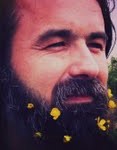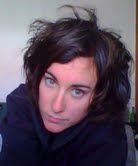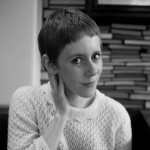
Dan Disney was born in 1970 in East Gippsland, where he grew up. He has worked in psychiatric institutions, paddocks, warehouses, and universities, and currently divides his time between Melbourne and Seoul, where he lectures in twentieth-century poetries at Sogang University. Articles and poems appear in Antithesis, ABR, Heat, Meanjin, New Writing, Overland, Orbis Litterarum, and TEXT, and poems have recently received awards in the Josephine Ulrick Poetry Prize (2nd) and the Dorothy Sargent Rosenberg Prize (USA). He is on the advisory board of Cordite scholarly. His first full collection of poems, and then when the, was published by John Leonard Press in 2011.
‘only someone who already knows how to do something with it can significantly ask a name’
—— from Wittgenstein’s Tractatus
old buildings, falling out the sky
after the shriek of love leaves her body
I’m still there, a peasant and ass
laboring through dark hills toward the small bright windows
of infinity
meanwhile, afternoon seethes across a mechanical sky
the tzzz-ing of aircon
telling cicadas the rain
is a promised machine falling in pieces
‘don’t go’, I tell
her eyes darkly flicking, a slow
river in my shadow
listening to echoes deep in cold
mountains
(knee-high, green texta, weedy piss-stained carpark wall)
‘be the beauty you wish to see in the world’
I spent childhood in a hurricane. Hungry dogs wolved at the door.
Mother was an old television, father a fourth dimension. Had rain
fallen in downward lines, we’d have embraced and called it utopia
while deserts hurled themselves, sleeplessly, upon us
in the mind of the forest, the birds
are dreams tweeting rhapsodic operas. Flowers crane
their necks, louche
and metaphorical, while history looks on and falls
into place the way sunlight does. Morning is
thumping overhead, quipping ‘quieten!’ to the hives
chorusing a mist.
Thus the forest darkens, brightly
amid a copse of trees, ‘it’s not the flesh, drooped
and unblooming, but
our bones that groan so
beneath the slump of heaven’
the wooden temple amid hoarfrost. Her voice alone, is filled
with centuries. And when she talks, memories crowd
her bony feet and hop like chicks
(each sentence made of sunlight)
headline: ‘Bird of Paradise Cloned in Underworld
(Underworld Birds Not Happy)’
clutching the finger bones of dolls dreams
all the doors grinning
while night storms in: she’s there
in the corner of her lives
drinking the black
I was not there. The bird did nothing.
I was there pointing and the bird lifted and was then held out by air and this was called reality.
morning was a rain-smudged lens
focused into millennia
where strangers bent an early light
into shape
trailing the gloop of history indoors
new buildings, falling into the sky









